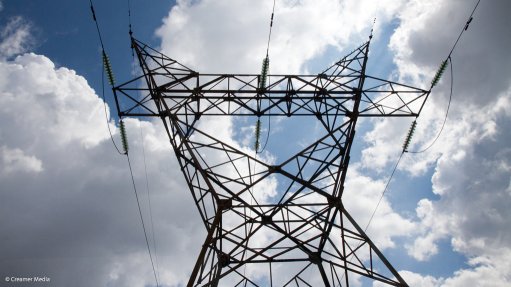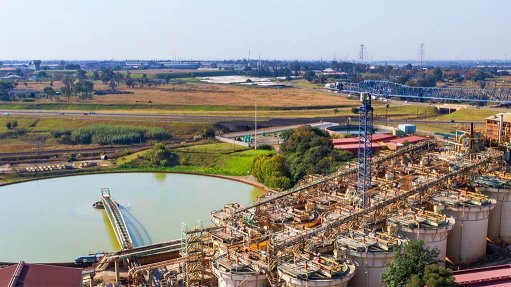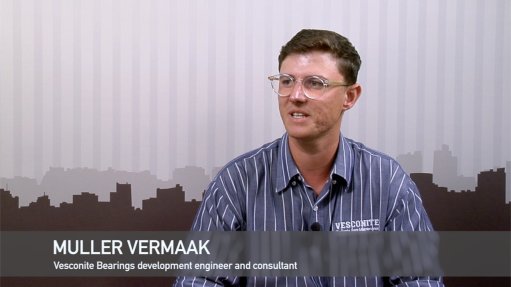CSIR achieves 81% of its KPI targets

In this video, CSIR CEO Thulani Dlamini presents some of the CSIR’s performance results for 2021/22 financial year and discusses them.
The Council for Scientific and Industrial Research (CSIR) has achieved 81% of its key performance indicators (KPIs) for the 2021/22 reporting year, exceeding them in 68% of cases.
CSIR CEO Thulani Dlamini said on November 8 that there had been an overall performance improvement compared with the previous financial year.
Some of the KPIs that were exceeded included a 127% achievement in the number of new localised technologies; 114% achievement in the number of joint technology agreements implemented for industry; 132% achievement in the number of small, medium-sized and microenterprises (SMMEs) supported; 129% achievement in the number of reports contributing to national policy development; and 215% achievement in the number of projects implemented to increase the capability of the State.
The CSIR researches, develops, localises and diffuses technologies to accelerate socioeconomic prosperity in South Africa.
The organisation supports government’s programmes through directed research that is aligned with the country’s priorities, the organisation’s mandate and its science, engineering and technology competences.
“If there are technologies or solutions out there that we can use in South Africa, we will strive to ensure that those solutions are brought into the country. It's also about creating some kind of strategic independence, reducing our balance of payments and substituting products that we would normally import from other parts of the world with locally developed products that can serve a similar purpose,” Dlamini said.
In terms of the CSIR’s strategic objective to conduct research, development and innovation of transformative technologies and accelerate their diffusion, 60% of the KPIs were achieved in the 2021/22 financial year, compared with 80% for the year prior.
The organisation met 100% of its targets with regard to improving the competitiveness of high-impact industries to support South Africa’s reindustrialisation by collaboratively developing, localising and implementing technology, compared with only 67% achieved last year.
The CSIR also achieved 100% in terms of its goal to drive socioeconomic transformation through research, development and industrialisation, which supports the development of a capable State, Dlamini said.
In so far as the strategic objective to build and transform human capital and infrastructure, he reported that 75% had been achieved compared with 83% a year before.
Finally, efforts to diversify income, as well as to maintain financial sustainability and good governance, were achieved 88% of the time in 2021/22, compared with 75% a year prior.
Dlamini reported that publication equivalents were also higher, as were priority patent applications, the number of technology demonstrators, the number of localised technologies and the number of SMMEs that were supported. Technology licence agreements – an area of slow growth in years past – grew by 300%.
The CSIR’s research programmes are designed to address national priorities as articulated by the President Cyril Ramaphosa, and are aligned with various national strategies and frameworks, such as the National Development Plan, the Medium-Term Strategic Framework 2019-2024, and other national policies, particularly those of the Department of Science and Innovation (DSI).
CSIR chairperson Professor Thokozani Majozi explained that the CSIR strategy sought to give meaning to the DSI’s 2019 White Paper on Science, Technology and Innovation. "Considering the imperative of supporting the State, it is heartening to see that the number of projects that contributed to increasing the State’s capability increased by nearly 50%."
In addition to existing strategies, plans, policies and frameworks, the CSIR also responds and contributes to the implementation of the South African government’s Economic Reconstruction and Recovery Plan (ERRP). The ERRP is the guiding policy framework in response to the impact of the Covid-19 pandemic on the South African economy. This framework identified the defence and aerospace industry – an area well serviced by the CSIR – as key to economic growth.
Despite the CSIR’s positive performance metrics, it has not been immune to the impacts of low economic growth, according to Majozi.
“This affected the implementation of the new organisational strategy, with its added emphasis on industrial research, contract research and development, productivity during higher lockdown levels earlier in the reporting year, lease agreements with tenants, delays in acquiring public sector-funded equipment, and constrained energy supply,” he said.
Comments
Press Office
Announcements
What's On
Subscribe to improve your user experience...
Option 1 (equivalent of R125 a month):
Receive a weekly copy of Creamer Media's Engineering News & Mining Weekly magazine
(print copy for those in South Africa and e-magazine for those outside of South Africa)
Receive daily email newsletters
Access to full search results
Access archive of magazine back copies
Access to Projects in Progress
Access to ONE Research Report of your choice in PDF format
Option 2 (equivalent of R375 a month):
All benefits from Option 1
PLUS
Access to Creamer Media's Research Channel Africa for ALL Research Reports, in PDF format, on various industrial and mining sectors
including Electricity; Water; Energy Transition; Hydrogen; Roads, Rail and Ports; Coal; Gold; Platinum; Battery Metals; etc.
Already a subscriber?
Forgotten your password?
Receive weekly copy of Creamer Media's Engineering News & Mining Weekly magazine (print copy for those in South Africa and e-magazine for those outside of South Africa)
➕
Recieve daily email newsletters
➕
Access to full search results
➕
Access archive of magazine back copies
➕
Access to Projects in Progress
➕
Access to ONE Research Report of your choice in PDF format
RESEARCH CHANNEL AFRICA
R4500 (equivalent of R375 a month)
SUBSCRIBEAll benefits from Option 1
➕
Access to Creamer Media's Research Channel Africa for ALL Research Reports on various industrial and mining sectors, in PDF format, including on:
Electricity
➕
Water
➕
Energy Transition
➕
Hydrogen
➕
Roads, Rail and Ports
➕
Coal
➕
Gold
➕
Platinum
➕
Battery Metals
➕
etc.
Receive all benefits from Option 1 or Option 2 delivered to numerous people at your company
➕
Multiple User names and Passwords for simultaneous log-ins
➕
Intranet integration access to all in your organisation
















